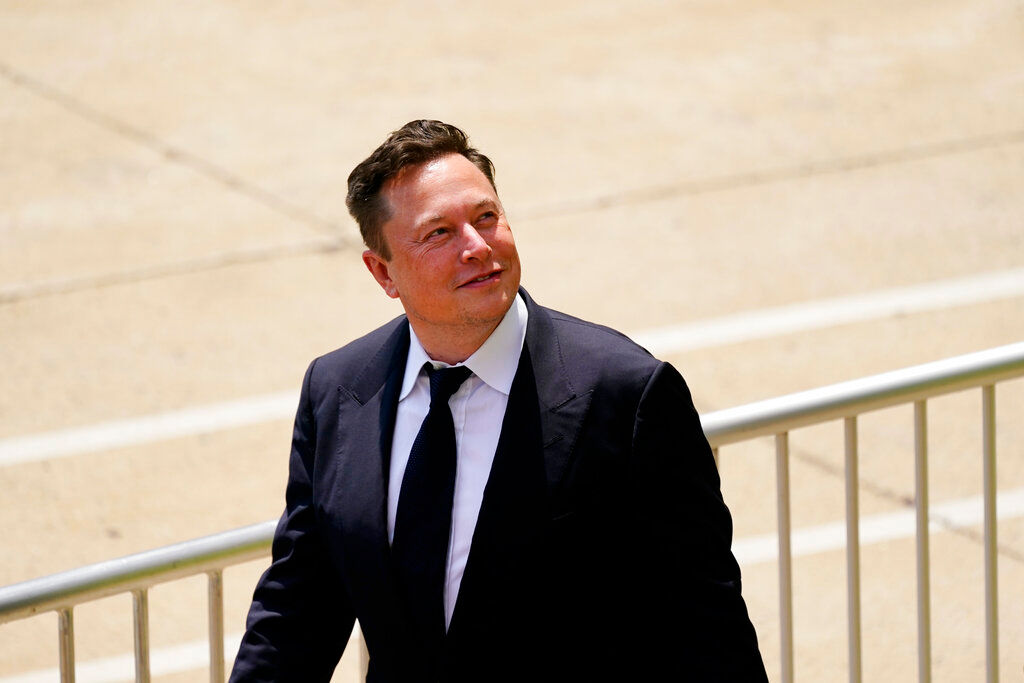Elon Musk, the Tesla CEO, has demanded that employees must return to the office to work in person for 40 hours per week or their employment will be terminated.
The news of this policy was revealed in a series of leaked emails sent by the 50-year-old on Tuesday, Elecktrek, an electric car website reported.
As per Elecktrek, Musk wrote, “Anyone who wishes to do remote work must be in the office for a minimum (and I mean *minimum*) of 40 hours per week or depart Tesla. This is less than we ask of factory workers”, adding that the employees’ offices must be a “main Tesla office, not a remote branch office unrelated to the job duties”.
Also Read | ‘Moderate R’ Elon Musk swings back to centrism in exchange with Andrew Yang
The entrepreneur added in an email that he’d directly review and approve of any requests for exemption from the return to office policy, saying “If you don’t show up, we will assume you have resigned.”
Musk added, “Tesla has and will create and actually manufacture the most exciting and meaningful products of any company on Earth. This will not happen by phoning it in”.
The billionaire also responded on Twitter to a user asking him to comment on the leaked email. He said “they should pretend to work somewhere else” when questioned about workers thinking that returning to office is an antiquated concept.
Will Musk revoke Twitter’s work-from-home policy?
With Musk’s current insistence on returning to the office, it remains to be seen if the billionaire implements this policy across all companies he owns. Musk is now also poised to acquire Twitter. The social media company had earlier allowed workers to continue working from home forever if they so wished. However, seeing Musk’s stance, this rule could be subject to change under new ownership.
Work from home vs work from office: What the studies say
Since the pandemic, the debate between working from home and office has only accelerated. An Iza World of Labour, which is a collaboration between the Institute for the Study of Labor and Bloomsbury publishing, study shows that the kind of work plays a huge role in where an employee is working from. If the job they do is routine and repetitive, then working from home has seen an increase in employee productivity, while more complex jobs requiring problem-solving saw a dip in productivity in the work-from-home model.
Also Read | The internet remembers: In 2011, Elon Musk promised to put man on Mars in next 10 years
However, a Harvard Business Review research found that knowledge workers saw an increase in productivity while working from home. “Knowledge workers” are people who think for a living, and knowledge is their primary capital. They include programmers, scientists, and engineers – basically people who need to actively problem-solve. As per the HBR study, working remotely helped people focus on tasks that mattered, with 12% less time spent being drawn into large meetings, and 9% time saved by avoiding customer and external interactions.
Chicago’s Booth School of Business, however, has an even more detailed study arguing both sides of the case – but notes that even tech entrepreneurs like Mark Zuckerberg have viewed working remotely as favourable.
The problematized love for Chinese labour
Musk has long been vocal about his stance against remote work and has criticized the American work ethic as well. Speaking to Financial Times, the entrepreneur said that Americans were avoiding going to work at all while drawing a comparison with Chinese factory workers, who work hard and won’t even leave the office.
Musk continued in the 2022 interview, “There is just a lot of super talented hardworking people in China who strongly believe in manufacturing”, adding, “They won’t just be burning the midnight oil, they will be burning the 3 AM oil, they won’t even leave the factory type of thing, whereas in America people are trying to avoid going to work at all.”
Also Read | What is ‘deep time’ that Elon Musk is thinking about
The world’s richest man makes his wealth off Chinese labour, even introducing a “closed-loop system” in April. This takes a page from the Chinese government’s book during the Beijing Olympics, in an attempt to contain the participants and prevent a COVID outbreak. However, in Musk’s Tesla, this “closed-loop” reportedly forced workers to pull 12-hour shifts, six days a week, often sleeping on the factory floors.
Local journalists have reported on labour rights and safety violations in the Shanghai Tesla factory which opened in 2018. They’ve also dubbed it ‘Giga-sweatshop’.
Also Read | Why Elon Musk relating to Dr Manhattan may not be good news for earth
Musk merely capitalized on China’s extreme ‘996’ culture, celebrated by Chinese tech tycoon Jack Ma. The term means to work from 9 AM to 9 PM, six days a week. In 2021, BBC reported that China was taking a harder look at its labour laws, which a paper on law and business, from Australia’s Wollongong University, calls “modern slavery”.
Despite the Chinese government’s laws which state that a workday is eight hours long, and workers can be made to function 44 hours a week, beyond which they have to be paid overtime, this rule is not enforced in most factories.
China to California- the song remains the same
Musk’s disregard for a healthy work-life balance and labour laws is not new. He previously said on Twitter, “nobody ever changed the world on 40 hours a week”, adding that he works 120-hour weeks himself.
The entrepreneur’s work culture in California’s Tesla factory led to some discontent with Jonathan Galescu, a production technician at Tesla telling The Guardian, “I’ve seen people pass out, hit the floor like a pancake and smash their face open. They just send us to work around him while he’s still lying on the floor.”
Also Read | Why did Twitter shareholders sue Elon Musk
Richard Ortiz, another production worker, said that the factory was very high-tech before noting the sad working conditions – “Everything feels like the future but us.”
Musk’s insistence on returning to office isn’t a big surprise either. His exit from California came after state backlash against keeping the factory open and having workers show up even amid the COVID-19 pandemic.
The current insistence on returning to the work-from-office model has again thrown a light on the world’s richest person’s unscrupulous expectations from his workforce, and the advantage he gets from Chinese labour.







